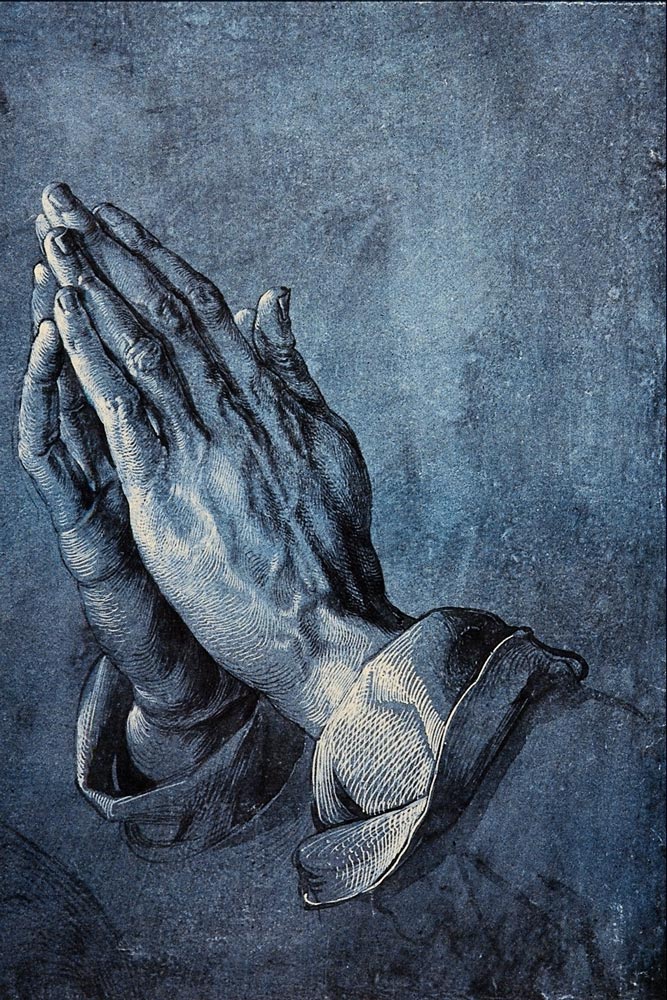| Praying Hands | |
|---|---|
 |
|
| Artist | Albrecht Dürer |
| Year | c. 1508 |
| Medium | Drawing |
| Location | Albertina, Vienna |
| Dimensions | 11.5 in × 7.8 in |
| 29.1 cm × 19.7 cm | |
| Famous Paintings by Albrecht Dürer | |
| Young Hare | |
| Rhinoceros | |
| Adam and Eve | |
| Praying Hands | |
| Knight, Death and the Devil | |
| Apocalypse | |
| Self-Portrait of Albrecht Dürer | |
| Melencolia I | |
| Adoration of the Trinity |
Praying Hands by Albrecht Dürer is a famous ink and pencil drawing created in the early 14th century. The drawing is on blue colored paper that the artist made himself. Praying Hands is part of a series of sketches that Dürer drew for an altarpiece. The drawing shows the hands of a man praying with his body out of view on the right. The sleeves of the man are folded and noticeable in the painting. The paper was made by the artist himself and portrays blue and green tones. Praying Hands is a sketch.
Where is Praying Hands?
Praying Hands was part of a painting which took Dürer more than a year to complete. It was intended to be part of a piece called Heller Alter. Although the original work was lost in a fire in the 18th century, a close copy of the painting done by Jobst Harrich remains at Albertina Museum in Vienna.
The Origin
The work was originally requested by Jakob Heller and is named after him. Although there are many rumors and stories about Dürer using his brother’s hands as a reference and the man’s hands suffering with some affliction, it is much more likely that Dürer modeled the hands after his own. The same hands can be observed in some of his other works.
Durer is one of the most noted German Renaissance artists and became very famous in his lifetime. He is still noted as one of the most influential figures of his time. He was a watercolor landscape artist and furthered the art of woodcut sculpting. Durer’s work often incorporated classic motifs and he wrote in great length about being inspired by his theological beliefs. Some of his other well-known work is Melencolia, Saint Jerome in His Study and Knight, Death and The Devil.